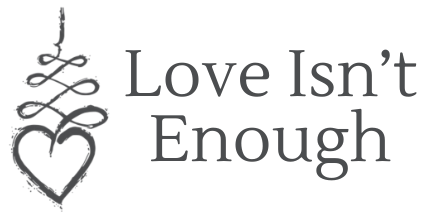By Dr. John Schinnerer and Joree Rose, LMFT
People pleasing often shows up as a deeply ingrained pattern of putting other people’s needs, wants, and emotions above our own. While this may seem noble on the surface, chronic people pleasing can quietly erode your well-being—leading to burnout, resentment, exhaustion, illness, self-neglect, and emotional disconnection.
We often see people come into therapy in their 40s or 50s feeling completely lost, not realizing how this lifelong pattern of pleasing others has taken such a toll on them. It’s especially prevalent among women due to social conditioning that values relational roles above personal needs—consider the mothers who put their children first to the point of forgetting how to put themselves on the list at all.
So, what are the key areas to look at if you’re a people pleaser?
We break it down into six core components:
1. Boundary Setting
2. Excessive and Inappropriate Guilt
3. Conflict Avoidance
4. Loneliness
5. Resentment
6. Identifying Your Own Needs
In this article, we’ll explore the first two in depth. Subsequent articles will address the remaining four.
1. Boundary Setting: Knowing Where You End and Others Begin
Boundaries are a foundational skill for breaking out of the people pleasing pattern. But to set boundaries, you first need self-awareness: Who are you? What matters to you? What are your values?
Many people pleasers struggle to set limits because their sense of identity is so wrapped up in being liked or needed. Without a strong sense of self, it’s nearly impossible to define what is and isn’t okay in relationships.
A helpful way to frame boundaries is this: they’re not a rejection of others; they’re an affirmation of yourself. As Prentiss Hemphill has said, boundaries are “the distance at which I can love you and me simultaneously.”
When we don’t set boundaries, we run the risk of self-abandonment. That’s when we consistently override our own needs, values, and safety to accommodate others. This leads to chronic resentment, emotional exhaustion, and often, a complete loss of self.
Key Tip:
Pay attention to where you feel frustration, anger, or irritability—these are emotional clues that a boundary has been crossed. Your emotions can help you discover where clearer lines need to be drawn.
2. Excessive and Inappropriate Guilt: The Glue That Holds People Pleasers Together
If boundaries are the wall people pleasers struggle to build, guilt is the emotional wrecking ball that knocks them down.
People pleasers often have an overactive sense of guilt—feeling bad even when they haven’t done anything wrong. On a scale of 1 to 10, many of us live between an 8 and 10, emotionally punishing ourselves for even minor acts of self-prioritization.
Guilt becomes the emotional hook that keeps you from asserting your needs or saying “no.” It’s also what makes people pleasers easy to manipulate—others can tap into that guilt to get what they want.
But here’s the truth: you are not responsible for other people’s emotions. You’re responsible for your words, actions, and how you deliver your truth—not for how someone else feels in response.
When guilt shows up, ask yourself:
Did I do something wrong?
Did I act with integrity?
Did I communicate clearly and respectfully?
If the answer is yes, then the guilt might be more about your old conditioning than your current choices.
Reframing Guilt:
Sometimes, high guilt is actually a reflection of how much you care. But caring deeply doesn’t mean you have to sacrifice yourself. You can love someone and still say “no.” You can care deeply and still choose yourself.
What’s Next?
We’ve only scratched the surface with boundaries and guilt. In upcoming posts, we’ll dive into:
How conflict avoidance feeds the cycle of people pleasing
The loneliness people fear if they stop pleasing others
The resentment that inevitably builds
And how to finally identify and honor your own needs
This journey isn’t about becoming selfish—it’s about becoming whole. You can care for others and still care for yourself. You can say “yes” to your own needs without saying “no” to love.
Stay tuned for Part 2.
Want To Go Deeper Down the Happiness Rabbit Hole? Here’s Where To Learn More:
👔 For Dr. John’s work helping execs and high performers stop silently imploding:
👉 [GuideToSelf.com](https://GuideToSelf.com)
😡 For info on Dr. John’s Ultimate Anger Management Course (which has over 20,000 graduates!), visit his High Performer Shop at https://guide-to-self.mykajabi.com/store.
💔 Curious about the couples counseling magic John’s doing with the amazing Joree Rose, LMFT
👉 [LoveIsntEnough.net](https://LoveIsntEnough.net)
(*Spoiler: Love isn’t enough, but skills, self-awareness, and maybe a glass of wine are.*)
🎙️ For all things caveman evolution, podcast-style:
👉 [TheEvolvedCaveman.com](https://TheEvolvedCaveman.com)
💃 For Joree’s powerhouse work helping women ditch burnout, find joy, and stop dating emotionally unavailable man-children:
👉 [JoreeRose.com](https://JoreeRose.com)

Recent Comments